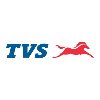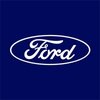Filter interviews by
Ashok Leyland Interview Questions and Answers for Experienced
53 Interview questions
This pen is not just a writing tool; it's a gateway to creativity, communication, and expression.
High-quality ink ensures smooth writing, making your thoughts flow effortlessly.
Ergonomic design provides comfort during long writing sessions, reducing hand fatigue.
Versatile use: perfect for signing important documents, jotting down ideas, or sketching.
Stylish appearance makes it a great gift for professionals or stu...
A cooling system regulates temperature in various applications, using methods like air conditioning, refrigeration, and heat exchangers.
Air Conditioning: Utilizes refrigerants to absorb heat from indoor air, providing a cooler environment, commonly used in homes and offices.
Refrigeration: Maintains low temperatures to preserve food and other perishable items, employing vapor-compression or absorption cycles.
Heat E...
Lead time is the total time from order to delivery, while lean time focuses on minimizing waste in processes.
Definition: Lead time refers to the total time taken from the initiation of a process until its completion, such as from order placement to delivery.
Example of Lead Time: In manufacturing, if a customer orders a product and it takes 10 days to produce and ship, the lead time is 10 days.
Lean Time: Lean time ...
Manufacturing is crucial in the automobile industry for production efficiency, quality control, and innovation in vehicle design.
Production Efficiency: Streamlined manufacturing processes, such as assembly lines, enable mass production of vehicles, reducing costs and time.
Quality Control: Rigorous testing and quality assurance in manufacturing ensure that vehicles meet safety and performance standards, enhancing c...
What people are saying about Ashok Leyland






PPC stands for Production Planning and Control, focusing on optimizing manufacturing processes and resource allocation.
PPC involves forecasting demand to ensure adequate production levels.
It includes scheduling production runs to maximize efficiency, e.g., using Gantt charts.
Inventory management is a key aspect, ensuring materials are available without overstocking.
PPC utilizes tools like ERP systems to streamline...
Production Planning Control (PPC) involves systematic steps to optimize production processes and resource allocation.
1. Demand Forecasting: Analyze market trends to predict product demand. Example: Using historical sales data to forecast next quarter's demand.
2. Capacity Planning: Assess production capacity to meet forecasted demand. Example: Evaluating machine availability and workforce skills.
3. Scheduling: Crea...
Effective material management ensures optimal inventory levels, reduces waste, and enhances production efficiency.
Implement Just-In-Time (JIT) inventory to minimize holding costs and reduce waste. For example, ordering materials only as needed.
Utilize an ERP system for real-time tracking of materials, which helps in forecasting demand and managing stock levels efficiently.
Conduct regular audits of inventory to ide...
Turbochargers boost engine power by forcing in more air, while EGR reduces emissions by recirculating exhaust gases.
Turbochargers increase engine efficiency by compressing air, allowing for more fuel to be burned.
EGR (Exhaust Gas Recirculation) helps lower nitrogen oxide emissions by recirculating a portion of the exhaust back into the intake.
Example of turbo: A turbocharged engine can produce more horsepower with...
The product life cycle outlines the stages a product goes through from introduction to decline.
Introduction: The product is launched; marketing efforts are high. Example: Electric cars in the early 2000s.
Growth: Sales increase as the product gains market acceptance. Example: Smartphones in the late 2000s.
Maturity: Sales peak and market saturation occurs. Example: Traditional laptops.
Decline: Sales decrease due to ...
At my previous company, I led a project that improved engine efficiency by 15%, significantly reducing emissions and operational costs.
Implemented a new testing protocol that reduced testing time by 20%.
Collaborated with cross-functional teams to enhance engine design, leading to a 10% increase in power output.
Developed a predictive maintenance model that decreased downtime by 30%.
Ashok Leyland Interview Experiences for Experienced
105 interviews found
I appeared for an interview in Jan 2025.
It depends on the level of preparation.
(2 Questions)
- Q1. What factors does your qualification depend on?
- Ans.
Qualifications depend on factors such as education, experience, skills, certifications, and industry knowledge.
Education - level of degree or certifications obtained
Experience - years of relevant work experience
Skills - specific abilities or competencies required for the role
Certifications - additional qualifications or licenses
Industry knowledge - understanding of specific industry trends and practices
- Q2. Depends on level of your position in this company ?
Interview Preparation Tips
(2 Questions)
- Q1. About the current working
- Q2. About the company
Interview Preparation Tips
I appeared for an interview before Jul 2024, where I was asked the following questions.
- Q1. Material grade used in exterior panel
- Q2. Shell design safety
I appeared for an interview in May 2025, where I was asked the following questions.
- Q1. Tell about dpf, doc, scr?
- Ans.
DPF, DOC, and SCR are technologies used in diesel engines to reduce emissions and improve air quality.
DPF (Diesel Particulate Filter) captures and stores soot from exhaust gases to reduce particulate emissions.
DOC (Diesel Oxidation Catalyst) converts carbon monoxide and hydrocarbons into carbon dioxide and water, aiding in emission reduction.
SCR (Selective Catalytic Reduction) uses a urea-based solution to convert nitr...
- Q2. What is your previous rating you will get in your company?
- Ans.
I received an 'Exceeds Expectations' rating for my performance, reflecting my commitment to quality and precision in calibration tasks.
Consistently met calibration deadlines, ensuring minimal downtime for production.
Implemented a new calibration procedure that improved accuracy by 15%.
Received positive feedback from cross-functional teams for collaboration and support.
Interview Preparation Tips
I appeared for an interview in Apr 2025, where I was asked the following questions.
- Q1. Related department work
- Q2. Excel and math question
Interview Preparation Tips
I appeared for an interview in Apr 2025, where I was asked the following questions.
- Q1. What motivated you to join Ashok Leyland?
- Ans.
I was motivated to join Ashok Leyland due to its strong reputation in the automotive industry and commitment to innovation and sustainability.
Industry Leadership: Ashok Leyland is one of the largest commercial vehicle manufacturers in India, known for its robust product portfolio and market presence.
Commitment to Innovation: The company's focus on research and development, particularly in electric and hybrid vehicles, ...
- Q2. What is the importance of manufacturing in the automobile industry?
- Ans.
Manufacturing is crucial in the automobile industry for production efficiency, quality control, and innovation in vehicle design.
Production Efficiency: Streamlined manufacturing processes, such as assembly lines, enable mass production of vehicles, reducing costs and time.
Quality Control: Rigorous testing and quality assurance in manufacturing ensure that vehicles meet safety and performance standards, enhancing custom...
- Q3. What is different Lead and lean time
- Ans.
Lead time is the total time from order to delivery, while lean time focuses on minimizing waste in processes.
Definition: Lead time refers to the total time taken from the initiation of a process until its completion, such as from order placement to delivery.
Example of Lead Time: In manufacturing, if a customer orders a product and it takes 10 days to produce and ship, the lead time is 10 days.
Lean Time: Lean time empha...
I appeared for an interview in Sep 2024.
SAFTY QUESTION
(3 Questions)
Head light dressing room traning
- Q1. Off track operator
- Q2. Light dressing
- Q3. Spare tyre assembly
Interview Preparation Tips
I appeared for an interview in Apr 2025, where I was asked the following questions.
- Q1. Can you describe the cooling system?
- Ans.
A cooling system regulates temperature in various applications, using methods like air conditioning, refrigeration, and heat exchangers.
Air Conditioning: Utilizes refrigerants to absorb heat from indoor air, providing a cooler environment, commonly used in homes and offices.
Refrigeration: Maintains low temperatures to preserve food and other perishable items, employing vapor-compression or absorption cycles.
Heat Exchan...
- Q2. Can you describe a field failure that you investigated closely?
I applied via Campus Placement and was interviewed in Jul 2024. There were 2 interview rounds.
Mechanical se related
(3 Questions)
- Q1. Fitter mechanical experience
- Ans.
I have 2 years of experience as a fitter mechanic working on industrial machinery.
Experience with troubleshooting and repairing mechanical components
Knowledge of reading technical drawings and schematics
Skilled in using hand and power tools for assembly and disassembly
Familiarity with preventive maintenance procedures
Ability to work independently or as part of a team
- Q2. Fitter se related
- Q3. Mechanical department
Interview Preparation Tips
- VILL post abisahan dist ghazipur
- *****
I appeared for an interview in Dec 2024.
(2 Questions)
- Q1. One to one round
- Q2. May job releated to secondary and primary sales both so plz ask questions releated to my field
(2 Questions)
- Q1. My previous background and work releated questions
- Q2. Company releated questions
Ashok Leyland Interview FAQs
Some of the top questions asked at the Ashok Leyland interview for experienced candidates -
The duration of Ashok Leyland interview process can vary, but typically it takes about less than 2 weeks to complete.
Tell us how to improve this page.
Ashok Leyland Interviews By Designations
- Ashok Leyland Deputy Manager Interview Questions
- Ashok Leyland Graduate Apprentice Trainee Interview Questions
- Ashok Leyland Graduate Engineer Trainee (Get) Interview Questions
- Ashok Leyland Quality Inspector Interview Questions
- Ashok Leyland Senior Officer Interview Questions
- Ashok Leyland Electrical GET Interview Questions
- Ashok Leyland Executive Interview Questions
- Ashok Leyland Production Planning Control Engineer Interview Questions
- Show more
Interview Questions for Popular Designations
- Deputy Manager Interview Questions
- Graduate Apprentice Trainee Interview Questions
- Graduate Engineer Trainee (Get) Interview Questions
- Quality Inspector Interview Questions
- Senior Officer Interview Questions
- Executive Interview Questions
- Production Planning Control Engineer Interview Questions
- Electrical GET Interview Questions
- Show more
Overall Interview Experience Rating
based on 47 interview experiences
Difficulty level
Duration
Interview Questions from Similar Companies
Ashok Leyland Reviews and Ratings
based on 4.9k reviews
Rating in categories
|
Assistant Manager
1.1k
salaries
| ₹5.2 L/yr - ₹12 L/yr |
|
Deputy Manager
986
salaries
| ₹7.4 L/yr - ₹16.4 L/yr |
|
Senior Officer
503
salaries
| ₹3.9 L/yr - ₹7.5 L/yr |
|
Quality Inspector
456
salaries
| ₹1.2 L/yr - ₹3.5 L/yr |
|
Quality Engineer
410
salaries
| ₹1.4 L/yr - ₹4.4 L/yr |

Tata Motors

Mahindra & Mahindra

Maruti Suzuki

Hero MotoCorp
- Home >
- Interviews >
- Ashok Leyland Interview Questions >
- Ashok Leyland Interview Questions for Experienced













